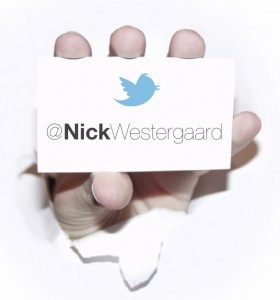 Many struggle with when and how to promote a business brand versus when and how to promote your personal brand. These are big decisions. Your personal brand is important — especially in the digital space — and merits the same kind of strategic considerations you undertake when building a corporate brand.
Many struggle with when and how to promote a business brand versus when and how to promote your personal brand. These are big decisions. Your personal brand is important — especially in the digital space — and merits the same kind of strategic considerations you undertake when building a corporate brand.
As I’ve shared on this blog in recent weeks, I’ve made some changes related to my own personal branding. The first move I made was separating my brand-driven insights blog from our firm’s corporate website where we offer brand development and strategic marketing services. I did this both to free my commentary from the constraints of a website that sells very specific services and to build my own personal brand and thought leadership.
This week I took it a step further and switched my Twittter handle back to @nickwestergaard. I say switched ‘back’ because I had this originally when I joined Twitter a few years back but soon switched to ‘westerad’ to mirror our firm’s URL. As I moved my online voice to my own personal brand URL, it only seemed logical to re-align the Twitter handle (by the way, the process of switching usernames without losing followers, etc. is much easier than it used to be on new Twitter — Account/Settings/Change Username). The finishing touch came when I capped @NickWestergaard for both readability of my long, double-voweled, Danish last name and also to tie-in visually with my blog’s header. Little iconic brand cues like this can be key in imprinting your personal brand DNA on your audience.
Ultimately, decisions like these are part of a larger set of considerations that need to be carefully thought out when determining if you are primarily a personal or a corporate brand online. It also depends on what your business is. If you sell a very specific or concrete set of products, such as high-end flutes, then you would want to build your online content and thought leadership around your corporate brand to support that entity and build on that brand story.
The same holds true for some in the service industry, however, I feel that the professional services arena is a different animal. If your business or firm is small and targeted, the product you end up selling is, in fact, you. The work you deliver is ultimately a series of personal interactions with you as the provider of a very specific brand of expertise. That’s why you see many in marketing, consulting, coaching, and the like building a personal brand site where they can demonstrate this expertise and provide a feel for their distinct voice. In this dynamic, the individual service provider’s brand story is at the forefront and then proceeds to pull interested parties through to their corporate brand site or to more commercial pages of their personal site.
And just as the personal brand pulls through to commercial messaging, corporate brands can also spotlight individuals known for certain areas of expertise within the company or in support of a specific segment. It’s not an ‘either/or’ decision but rather a dynamic to better understand what has primary focus in your messaging — a personal brand or a company brand.
The Brand-Driven Insight? Are you working to obtain popular appeal for a product or a person? Understanding this is key in prioritizing your URL and Twitter handle decisions. In some cases the company very obviously needs to dominate the forefront while in other dynamics the connection with a personal brand trumps who sends out the invoice. Remember, nothing is cast in stone. Branding is an organic process. If you try it one way and get it wrong, changing is easy. Just ask me.
Final Thought – I struggled with adopting my name for my own personal brand due in no small part to the how cumbersome my last name is. It’s a practical concern as it’s easy to misspell ‘Westergaard’ and at 11 letters (plus four for ‘Nick’) it eats away at re-tweet characters. In fact, a key strategy behind the ‘westerad’ URL was to avoid people having to type our last name. Sounds logical in the short term but when you take a step back you realize that what you’re really doing is not requiring people to learn your name and how to spell it. In the long-run, to build a powerful brand, you need to start priming your audience with your personal brand’s cornerstone — your name. Sure, not everyone knows how to spell Westergaard. Yet.

